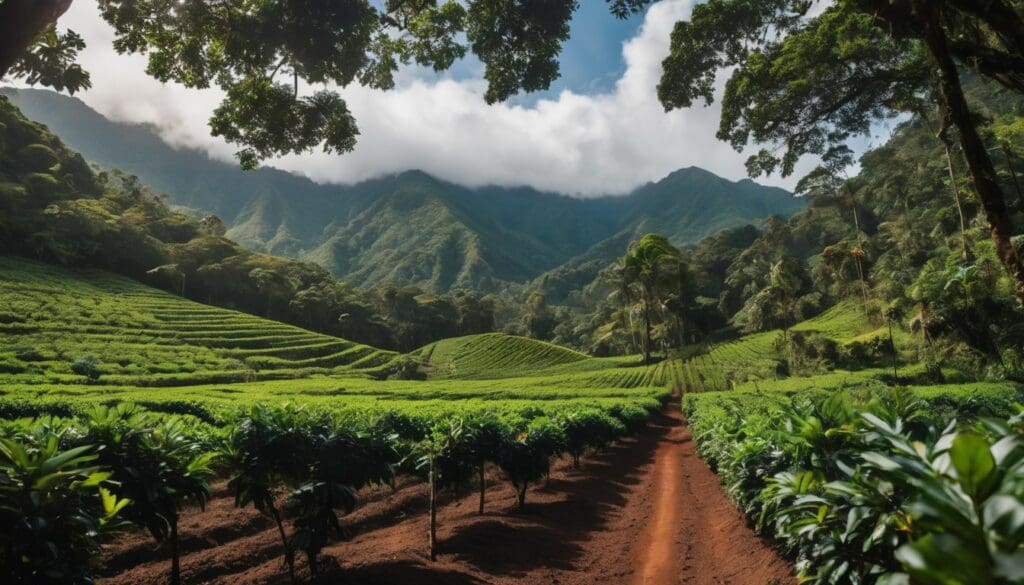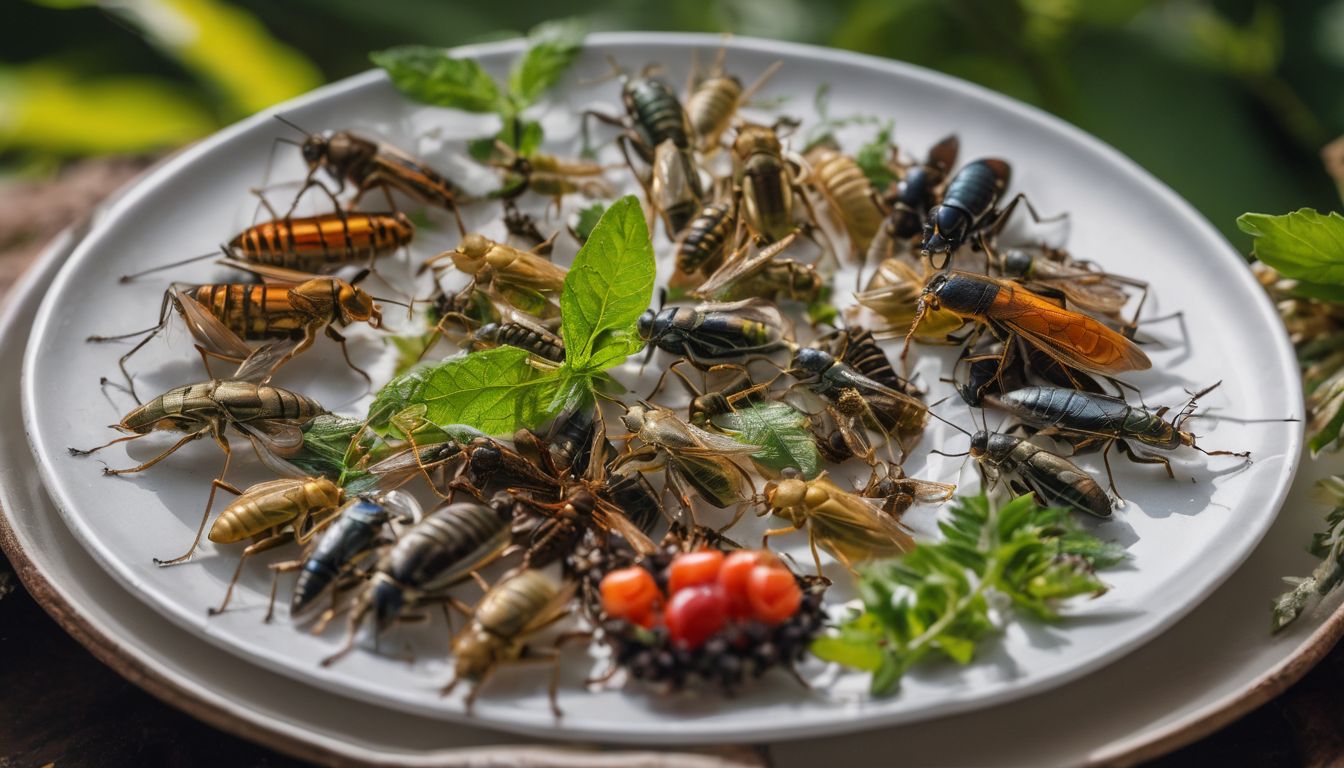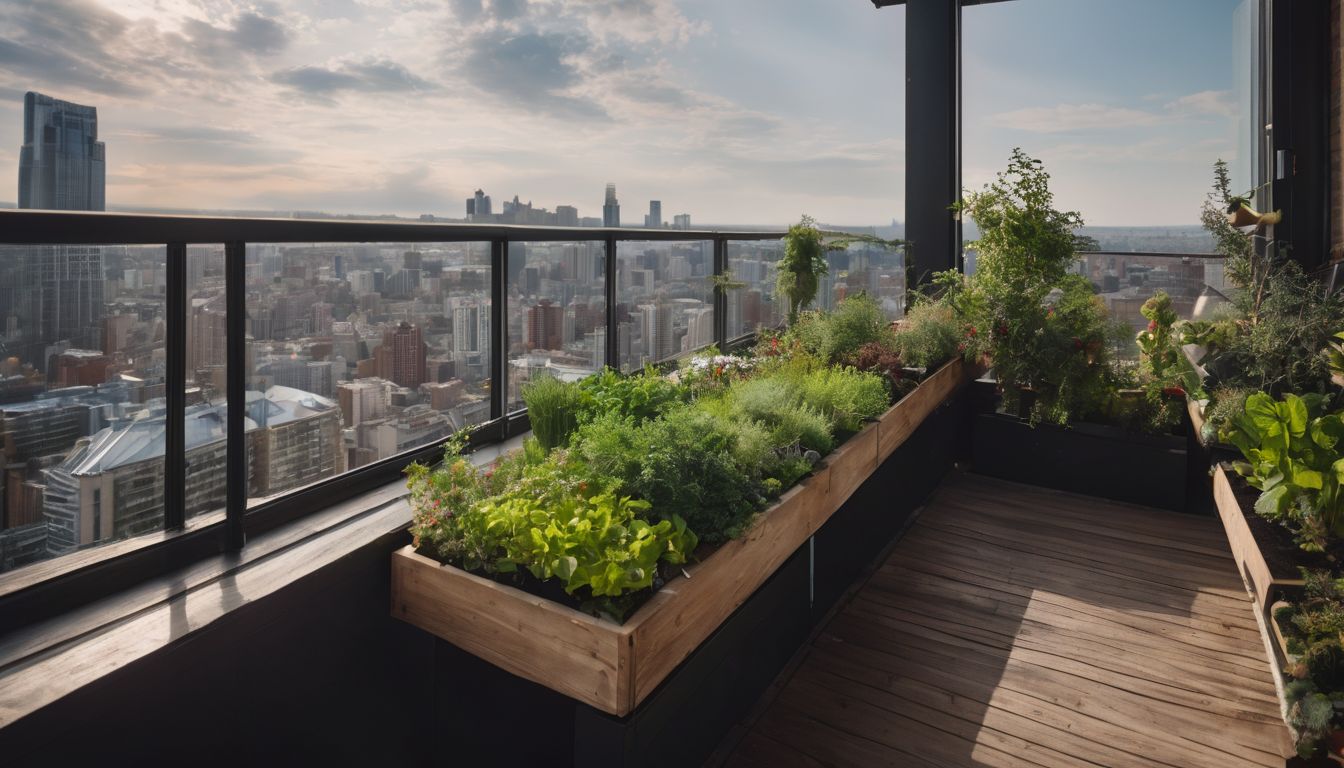Many of us start our day with a hot cup of coffee, but have you considered the impact of that morning brew on our planet? Astonishingly, traditional coffee production can lead to severe environmental issues like deforestation and habitat loss.
This article will explore the ways in which your coffee choices can either harm or help the environment. Stick around to find out how you can make a difference one sip at a time!
Key Takeaways
- Traditional coffee farming practices can lead to deforestation, soil erosion, water pollution, and a decrease in biodiversity due to the removal of trees and use of agrochemicals.
- Shade – grown coffee serves as a more sustainable alternative that supports wildlife habitats, conserves biodiversity and improves soil health by reducing the need for chemical fertilisers and pesticides.
- Consumers have the power to influence positive change in the coffee industry by selecting shade – grown or organic coffees, which are grown using environmentally friendly methods.
- The environmental impact of coffee production is closely linked with human costs such as labour exploitation and negative effects on indigenous communities who may face economic hardships or cultural loss.
- Supporting Fair Trade certified brands and local initiatives for sustainably produced coffee can contribute towards protecting both the environment and improving conditions for workers.
The Traditional Methods of Coffee Production
Traditional coffee production methods have a significant impact on the environment, including deforestation, soil erosion and degradation, pollution of water sources, and the use of agrochemicals.
These practices also generate a substantial amount of waste and negatively affect soil quality.
Impact on Deforestation
Coffee farms often clear vast areas of forest to make way for endless rows of coffee plants. This loss of trees contributes significantly to climate change as forests play a critical role in absorbing carbon dioxide from the atmosphere.
The demand for sun-grown coffee, which requires open, sun-filled areas, accelerates this deforestation process—even more when it comes to monocrop cultivation, which is growing only one type of crop over a large area.
Deforestation for coffee production also threatens biodiversity. Many unique species lose their natural habitats as trees are cut down to expand plantations or create new ones. Without the shelter and food sources that forests provide, these species struggle to survive or are forced to migrate if they can, leading some towards extinction.
Moving on from the sobering effects on our planet’s lungs brings us to another environmental concern: soil erosion and degradation, where the consequences of stripping land for coffee cultivation continue below ground level.
Soil Erosion and Degradation
Soil erosion and degradation happen when traditional coffee production methods strip the land of its natural protective cover. This leaves soil vulnerable to being washed away by rainfall, leading to reduced fertility and ecosystem damage.
As a result, this process affects water quality, decreasing access for communities in the local area. Moreover, it contributes to carbon emissions from depleted soils.
To mitigate these issues, embracing sustainable alternatives is crucial. Shade-grown coffee plays an important role in conserving soil health by maintaining protective canopies and preserving vital ecosystems.
Water Pollution and Contamination
Coffee production contributes to water pollution and contamination through the heavy use of agrochemicals, such as fertilisers and pesticides. These chemicals can seep into the ground and contaminate both surface water and groundwater, impacting aquatic life and potentially endangering human health.
Furthermore, the washing process used to remove the pulp from coffee cherries produces wastewater containing high levels of organic matter, which can deplete oxygen in water bodies when released without proper treatment.
To address these environmental challenges associated with traditional coffee production methods, it is crucial for consumers to support sustainable alternatives that prioritise eco-friendly cultivation practices.
By choosing shade-grown or organic coffee, customers can help reduce water pollution and support a healthier environment for all.
Use of Agrochemicals
Agrochemicals, such as fertilisers and pesticides, are commonly used in coffee cultivation. These chemicals have a significant impact on the environment, including soil contamination and water pollution.
Additionally, the excessive use of agrochemicals can lead to the depletion of natural resources and harm biodiversity. The presence of these chemicals can also affect human health and nearby ecosystems, making it crucial for environmentally conscious consumers to consider the environmental ramifications of their coffee choices.
Organic farming methods offer a sustainable alternative to reduce the reliance on agrochemicals in coffee production. By choosing organic or shade-grown coffee, individuals can support environmentally friendly practices that minimise the negative effects associated with agrochemical usage.
Generation of Waste
As a result of the use of agrochemicals in coffee cultivation, there is a significant generation of waste. This includes the disposal of pesticide containers, chemical residues in water sources, and soil contamination.
The improper management of this waste can lead to harmful environmental consequences such as water pollution and degradation of natural habitats, impacting both wildlife and human populations.
To tackle this issue effectively, sustainable alternatives need to be implemented within the coffee industry to minimise waste generation and ensure responsible disposal practices.
Effects on Soil Quality
Coffee production significantly impacts soil quality. The extensive use of agrochemicals in conventional coffee farming leads to soil degradation, harming its health and fertility.
This results in the depletion of essential nutrients in the soil, affecting the long-term sustainability of coffee cultivation. Soil erosion due to deforestation for coffee plantations further exacerbates this issue, leading to increased sedimentation and reduced water retention capacity in the soil.
Consequently, it is vital to support sustainable alternatives like shade-grown coffee that promote healthier soil conditions by maintaining biodiversity and minimising negative effects on soil quality.
The excessive use of agrochemicals depletes the nutrients from the soil, contributing to its degradation. Deforestation for planting coffee also leads to erosion and reduces water retention capacity in the soil.
Sustainable Alternatives to Traditional Coffee Production
Shade-Grown Coffee offers a sustainable alternative to traditional coffee production, providing important benefits for the environment. This method of cultivation helps protect wildlife habitats and preserves biodiversity, making it an eco-friendly choice for coffee drinkers.
Shade-Grown Coffee
Shade-grown coffee, as opposed to sun cultivation, involves growing coffee plants under a canopy of trees. This method preserves the natural habitat and ecosystem while promoting biodiversity.
Shade-grown coffee farms provide habitats for migratory birds and other wildlife, contributing to overall environmental sustainability.
The presence of trees in shade-grown coffee farms helps in carbon sequestration, reducing greenhouse gas emissions and mitigating climate change. Additionally, the use of agrochemicals is minimised due to the natural pest control provided by the diverse ecosystems created by shade-grown coffee farming.
Benefits for the Environment
Shade-grown coffee promotes biodiversity by providing habitat for birds and other wildlife. This method also helps to reduce the need for clear-cutting forests, preserving essential ecosystems and protecting against deforestation.
In addition, shade-grown coffee plantations contribute to carbon sequestration, aiding in the fight against climate change.
Furthermore, shade-grown coffee requires less water than sun cultivation methods, leading to reduced water usage and promoting water conservation. By choosing shade-grown coffee, environmentally conscious individuals can actively support sustainable agriculture while minimising the ecological footprint of their coffee consumption.
How to Support Sustainable Coffee Production
Choose shade-grown coffee to support sustainable production and consider purchasing from Fair Trade certified brands. Look for organic farming practices and carbon-neutral initiatives in the coffee industry.
Choosing Shade-Grown Coffee
Shade-grown coffee is cultivated under a canopy of trees, preserving the natural forest and providing habitat for wildlife. This method prevents deforestation and promotes biodiversity, reducing the carbon footprint of coffee production.
By choosing shade-grown coffee, you support sustainable practices that protect ecosystems and conserve natural resources.
Selecting shade-grown coffee contributes to healthier soil and improved water quality due to reduced chemical use and better conservation practices. With shade cultivation, the need for agrochemicals diminishes, resulting in less pollution of water sources.
Other Ways to Support Sustainable Production
To support sustainable coffee production, here are some other effective ways to contribute:
- Purchase coffee from certified Fair Trade organisations.
- Encourage local coffee shops and supermarkets to stock sustainably produced coffee.
- Educate others about the benefits of choosing environmentally friendly coffee options.
- Support organisations working towards promoting sustainable farming practices in the coffee industry.
- Reduce personal waste by using reusable cups and avoiding single – use packaging when consuming coffee.
The Human Costs of Coffee Production
Labour exploitation and the impact on indigenous communities are important considerations when discussing the environmental impact of coffee production. These human costs should not be overlooked in the broader conversation about sustainable coffee consumption.
Labour Exploitation
Workers in the coffee industry often face labour exploitation, with long hours, low wages, and sometimes hazardous working conditions. Many workers endure these unfair practices to meet the high demand for coffee.
This has a detrimental impact on their well-being and can perpetuate cycles of poverty within the communities that rely on coffee production.
The environmental impact of coffee production is closely tied to the human cost as workers are often subjected to exploitative labour practices. Their rights and well-being must be considered alongside ecological concerns.
Impact on Indigenous Communities
The coffee industry’s impact on indigenous communities is significant. It often leads to land displacement and the loss of traditional territories, disrupting their way of life. This can result in a loss of cultural identity and knowledge passed down through generations, as well as economic hardships for these communities.
The need for increased labour may also lead to exploitation and unfair working conditions within indigenous populations, amplifying social injustices.
Understanding the consequences of coffee production on indigenous communities is crucial when choosing which products to support. By recognising the potential impacts, we can make more informed choices that contribute positively to the environment and society.
Conclusion
Consumers can make a positive impact on the environment by choosing shade-grown coffee and supporting sustainable coffee production. Being aware of the environmental impact of coffee production is important for making responsible choices as a coffee consumer.
The Importance of Being a Responsible Coffee Drinker
Consumers can play a crucial role in mitigating the environmental impact of coffee production by choosing shade-grown coffee. This sustainable method protects natural habitats and biodiversity, reduces the need for agrochemicals, and minimises soil erosion.
By opting for shade-grown coffee, individuals positively contribute to conservation efforts and encourage eco-friendly practices within the coffee industry.
Supporting environmentally responsible coffee cultivation not only benefits the planet but also supports the livelihoods of farmers and indigenous communities involved in its production.
FAQs
1. What is the environmental impact of coffee production?
The environmental impact of coffee cultivation includes the effect on natural resources due to land use, water consumption, and pollution from farming methods like sungrown coffee that can harm local ecosystems.
2. How does shade-grown coffee benefit the environment?
Shade-grown coffee supports biodiversity by allowing plants and animals to thrive alongside crops, reducing ecological effects compared to traditional sun-exposed farms.
3. Can the way we grow coffee affect its environmental footprint?
Definitely! The techniques used in growing and harvesting can increase or decrease coffee’s environmental footprint based on how they manage soil health, water use, and protection of wildlife habitat.
4. Are there significant environmental consequences when producing more coffee?
Yes, increasing production without sustainable practices leads to greater environmental ramifications such as deforestation and strain on freshwater sources affecting overall ecosystem balance.
5. How can we reduce the negative effects of coffee production on our planet?
By choosing environmentally conscious options like eco-friendly farming practices or buying shadegrown over sungrown beans; consumers help lower harmful impacts and promote healthier environments where their favorite beans are grown.





